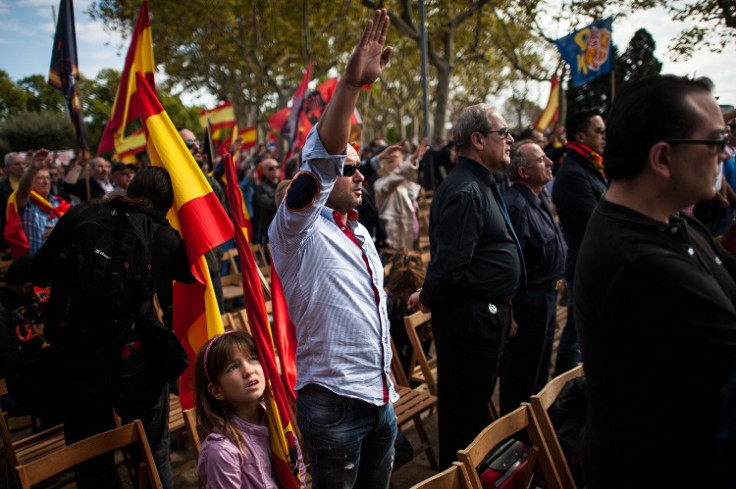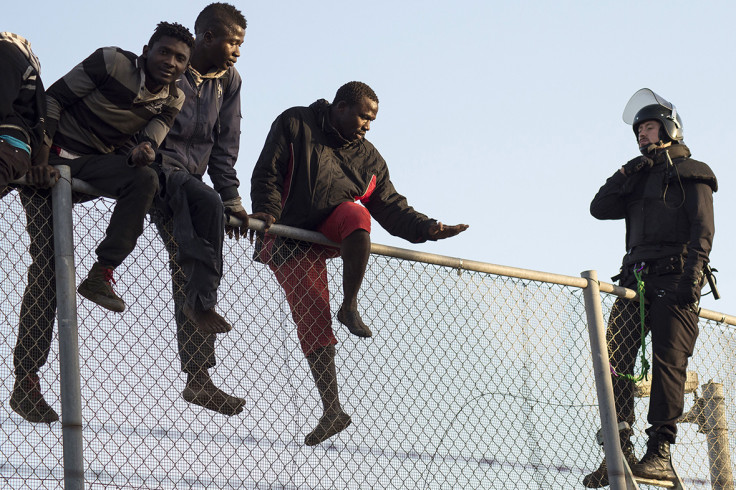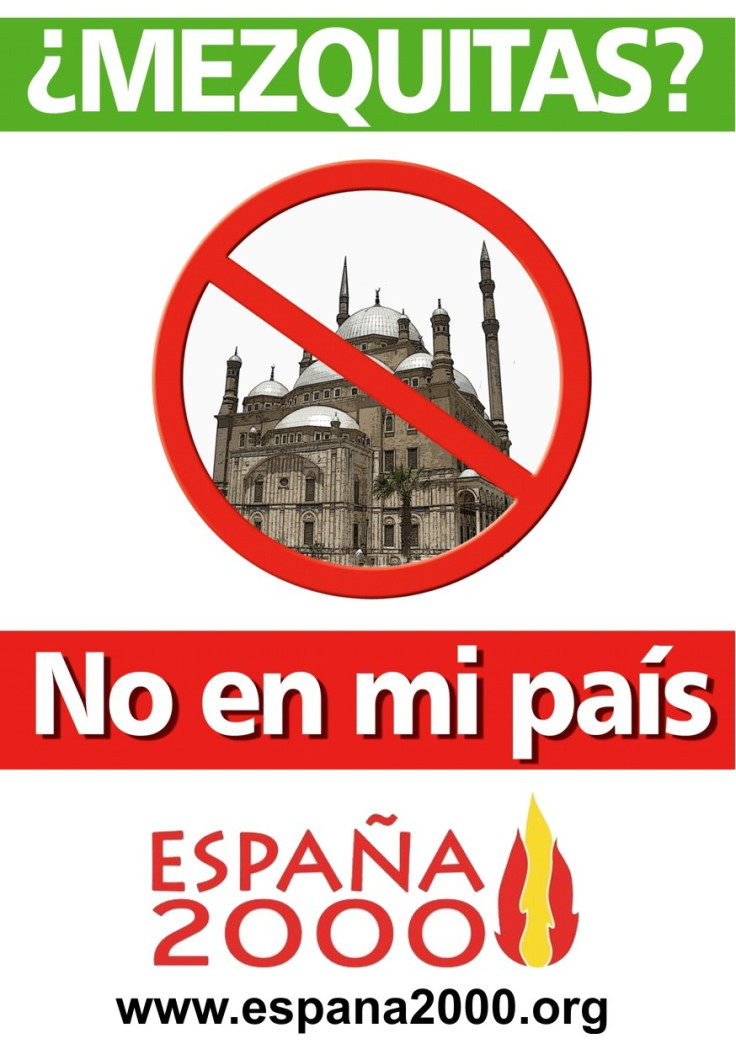Spain and the far right: Is spectre of Franco rising to haunt Europe's capital of fun?

First of all, a question for you, the reader. Which do you think will be the next European country to adopt a far-right government?
Your mind may be wandering towards Greece, a country which, with its economic tumult and powerful extremist factions, looks worryingly like the Weimar Republic in the months before the Nazis took power.
You might also be thinking of France, a country where the far-right already has a strong, legitimate political presence and which is still reeling from the Islamist attacks in Paris. Or maybe you're looking at Germany, given its troubled past and the huge Islamophobic marches orchestrated by Pegida in recent weeks.
But what about Spain? You might not have considered that one. Although the country has had its own brush with Islamic terrorism, the 2004 Madrid train bombings which killed 191 people, its immigrant community is far smaller than those in France and Britain, meaning there are fewer potential flashpoint areas. Spain's economy, unlike Greece's, is showing signs of recovery, predicated on a recession-busting tourism industry which plays on the image of Spaniards as a warm, relaxed bunch, not the sort of people who would vote a far-right party into power.
But the reality is slightly more complicated than that balmy caricature suggests. Spain was the last country to emerge from the fascist mania which overtook Europe in the second quarter of the 20th century. Forty years ago the country was still ruled by the iron fist of fascist dictator Francisco Franco, who held his own theories of racial hierarchies and the superiority of the Spanish people.

Today the country's governing party, the Partido Popular, is firmly right of centre, and resentment has been stirred by the boatloads of immigrants attempting to, literally, scale the fences which guard the country's North African outpost in Melilla.
In the north, the Catalans criticise the North African immigrants for draining benefits, and the region's charismatic leader Artur Mas has previously proposed a residence permit for immigrants, based on a points-based system, to curb the influx from abroad.
Far-right parties currently command less than 1% of Spain's political representation. However the anti-immigration forces are slowly, but surely, percolating the consciousness of a country where jobs are still hard to come by and youth unemployment remains at chronic levels.
Last year the Greek Neo-Nazi party, Golden Dawn, launched a Spanish branch in Alicante. Pegida has also opened a Spanish wing, while the right-wing Platform for Catalonia movement plans to hold a rally in Barcelona in support of the German islamophobes. In October Valencia witnessed a Nazi rally against Catalan independence, whose protagonists shouted 'Artur Mas, camera de gas' ['Artur Mas, gas chamber'].
So there are certainly worrying signs. But just how concerned should we be? Is there a chance that Spain will cast off the fun-loving image it has adopted since democracy was introduced in 1975, and regress to the fear and loathing of Franco's time?
Ana Gomez, of Amnesty International, told IBTimes UK: "Obviously there are some [far-right] ideologies that have settled in Spain, and many of these parties have their origin not only in Francoism but in Nazism and we have seen many pictures with Francoist or Nazi symbols, but clearly it is a society that is evolving to other areas.
"We can say that there has been an increase in reports of abuse and discrimination against foreign nationals and members of ethnic minorities in recent years. It is true that the crisis is also aggravating the situation."
'Education is a major problem for Muslims'
Pressed on the reasons for this increase, Gomez said: "At Amnesty International we believe the reluctance and late reply given by the Spanish government to introduce measures against racism and xenophobia has helped contribute to racism.
"For example, it's the first time that the Spanish government has published and released a report on the evolution of hate crimes in Spain. We don't have previous data and from Amnesty we have always insisted that it is very important to have these data."
Is the country's right-wing fringe focused on Muslims, as they appear to be in countries such as Germany and France? "We published a report in 2012 on the discrimination against Muslims", Gomez replies. "The report showed that Muslims in Spain suffer from discrimination in various areas, especially in education [the Muslim veil is banned in Spanish schools] and when trying to establish places of worship."
Gomez says that, while last month's Paris shootings brought widespread condemnation of the militant Islamic perpetrators, "even before the attacks, it is true that some authorities had a speech questioning if migrants should have the same rights. From Amnesty we have asked to change and stop this, because all people should have rights."
The Valencia problem
'Even before the Paris attacks, it is true that some authorities had a speech questioning whether migrants should have the same rights.'
From a distance, it seems Valencia is the nucleus of far-right feeling in Spain. October's Neo-Nazi rally was just the latest in several demonstrations to take place in the Mediterranean city, many of them organised by España 2000, which has been described as Spain's answer to Front Nationale.
The party, whose slogan is 'Los Españoles Primero' ('Spanish people first') has recently demanded the rearmament of Spain's local police, and organised food drives "for domestic people" in immigrant areas.
Gomez says that the Valencia region is indeed a nexus of Spanish racism, alongside Madrid and Barcelona. "Parties such as Platform for Catalonia or España 2000 were created [in these regions], and there have been racist and hate speeches" she says.

However, she doesn't feel that these parties pose a major threat in the short-term. "The representation they have is not significant. So far, authorities have banned demonstrations with a racist message, so at the moment we are just looking at how it develops.
"[Pegida] is a movement that has started from Plataforma per Catalunya, a party that lately has lost a lot of support. Currently it has no political representation and the latest news we have is that the Pegida concentration is unauthorised."
Moreover, Gomez does not think the problems of racism and Islamophobia are bigger in Spain than in any other European country. "In other countries such as France, Belgium, Switzerland or the Netherlands, they [the far right] have political representation."
However she sounds a note of caution, saying that "although we can't say Spain is a racist country, we do need to take special care and attention, to see how events unfold."
At the moment it seems the Spanish far-right is at a nascent stage, its noise and notoriety far out-stripping its actual political significance. However, in a country where fascism is still fresh in the memory, and economic turmoil fresher still, no-one can afford to be complacent.
© Copyright IBTimes 2025. All rights reserved.






















